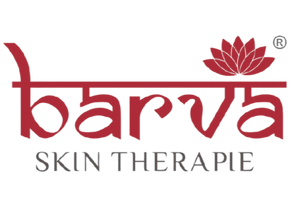Exfoliate to Rejuvenate! Why Should I use Face Scrub?
Posted by TEAM BARVA

You keep hearing or reading these terms all over the internet, especially social media - exfoliate, exfoliator, face scrub, and the like, and wonder what are these products? This article is going to answer this question for you as well as explain why the usage of these products is an important ritual in your weekly skin care routine. So, let’s jump right into it!
What is exfoliation or scrubbing?
Exfoliation is the process of using a face scrub, which is a wash-off product that contains particles of certain natural ingredients, most commonly walnut, almond powder, and in case of the Barva Renew Bamboo Exfoliator/Face Scrub, bamboo particles. It helps deep clean the pores of your skin to get rid of product buildup, blackheads, whiteheads, dead skin, and other harmful agents. It leaves your skin feeling soft, fresh, and new. It gives the skin a chance to rejuvenate. Face scrubs are also known as exfoliators.
When the pores of your skin are clogged, oil gets trapped in them, which can result in acne, pimples, and scars. It can also speed up the aging process. Normal face washes or cleansers cannot quite replace face scrubs or exfoliators.
In traditional Indian culture, even today, ubtan is used as an integral part of our abhyanga snan during Diwali. It is a very fragrant body scrub that cleanses our skin and has a lingering aroma that lasts for several hours after bathing.
How often should I exfoliate my skin with a face scrub?
You must use an exfoliator or face scrub at least thrice a week in case of oily skin. In case of normal or dry skin, twice a week is sufficient. However, you should not exfoliate daily as over cleansing the skin can harm its natural acid alkaline mantle. This can lead to irritation and inflammation.
Reasons Why You Should Use a Face Scrub at Least Twice a Week:
- It makes the skin smoother
Regular exfoliation/scrubbing makes the skin smoother as it improves the texture of the skin by unclogging pores. Post scrubbing, your moisturizer, gel, and other skin nourishing products work wonders on your skin as it helps increase the rate at which they are absorbed into your skin.
Most importantly, scrubbing removes an entire layer of dead skin cells from the surface of your skin! You will experience the difference as soon as you pat your face dry after having used a face scrub.
- It brightens your skin
With an entire layer of oil, blackheads and dead skin gone, your skin feels extremely fresh and this tends to show in the form of skin lightening and brightening. The regular use of a face scrub helps even out your skin tone and imparts a healthy glow to your face. It is also known to treat pigmentation over a period of time. Face scrubs with natural ingredients, such as lemon oil, organic ghee, aloe vera juice, jojoba oil, etc. cleanse as well as nourish your skin at the same time. And if it is followed up with the right moisturizer, it works wonders for moisturizing and brightening!
- It counteracts signs of aging
Regular exfoliation/scrubbing can help counteract signs of ageing because it helps clear out older skin cells that are responsible for the appearance of wrinkles and lines. Even though our skin has the ability to shed these cells naturally, this ability can get impaired due to ageing. Hence, exfoliation/scrubbing these cells is a good idea if you want to hide some of the evidence of getting older :).
- It prevents breakouts of acne and pimples
As mentioned earlier, the regular cleaning up of oil and product buildup keeps your pores fresh and clean, which prevents the formation of blackheads. Thus, the bacteria that causes pimples and acne is unable to survive in them. This leads to a significant lowering of acne and pimple breakouts and ensures that your skin is clear.
Now that you have learned an important ritual in your weekly skin care routine, do let us know your experience with face scrubs and what improvements you have experienced in the texture of your skin. We love hearing from you. Until next time, happy scrubbing :)
TAGS:

